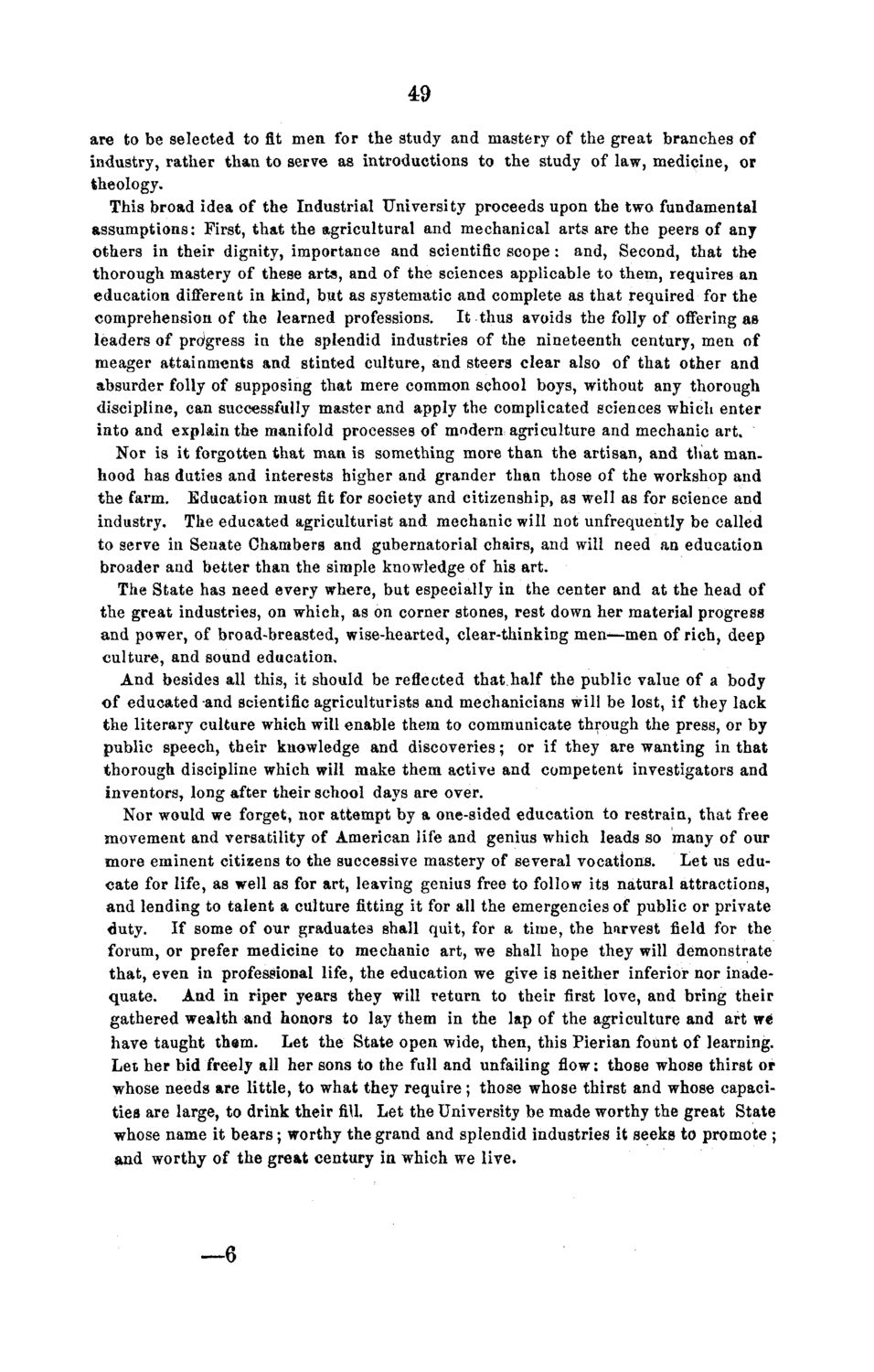| |
| |
Caption: Board of Trustees Minutes - 1868
This is a reduced-resolution page image for fast online browsing.

EXTRACTED TEXT FROM PAGE:
49 are to be selected to fit men for the study and mastery of the great branches of industry, rather than to serve as introductions to the study of law, medicine, or theology. This broad idea of the Industrial University proceeds upon the two fundamental assumptions: First, that the agricultural and mechanical arts are the peers of any others in their dignity, importance and scientific scope: and, Second, that the thorough mastery of these arts, and of the sciences applicable to them, requires an education different in kind, but as systematic and complete as that required for the comprehension of the learned professions. It thus avoids the folly of offering as leaders of progress in the splendid industries of the nineteenth century, men of meager attainments and stinted culture, and steers clear also of that other and absurder folly of supposing that mere common school boys, without any thorough discipline, can successfully master and apply the complicated sciences which enter into and explain the manifold processes of modern agriculture and mechanic art. Nor is it forgotten that man is something more than the artisan, and that manhood has duties and interests higher and grander than those of the workshop and the farm. Education must fit for society and citizenship, as well as for science and industry. The educated agriculturist and mechanic will not unfrequently be called to serve in Senate Chambers and gubernatorial chairs, and will need an education broader and better than the simple knowledge of his art. The State has need every where, but especially in the center and at the head of the great industries, on which, as on corner stones, rest down her material progress and power, of broad-breasted, wise-hearted, clear-thinking men—men of rich, deep culture, and sound education. And besides all this, it should be reflected that.half the public value of a body of educated and scientific agriculturists and mechanicians will be lost, if they lack the literary culture which will enable them to communicate through the press, or by public speech, their knowledge and discoveries; or if they are wanting in that thorough discipline which will make them active and competent investigators and inventors, long after their school days are over. Nor would we forget, nor attempt by a one-sided education to restrain, that free movement and versatility of American life and genius which leads so many of our more eminent citizens to the successive mastery of several vocations. Let us educate for life, as well as for art, leaving genius free to follow its natural attractions, and lending to talent a culture fitting it for all the emergencies of public or private duty. If some of our graduates shall quit, for a time, the harvest field for the forum, or prefer medicine to mechanic art, we shall hope they will demonstrate that, even in professional life, the education we give is neither inferior nor inadequate. And in riper years they will return to their first love, and bring their gathered wealth and honors to lay them in the lap of the agriculture and art we have taught them. Let the State open wide, then, this Pierian fount of learning. Let her bid freely all her sons to the full and unfailing flow: those whose thirst or whose needs are little, to what they require; those whose thirst and whose capacities are large, to drink their fill. Let the University be made worthy the great State whose name it bears; worthy the grand and splendid industries it seeks to promote ; and worthy of the great century in which we live. —6
| |